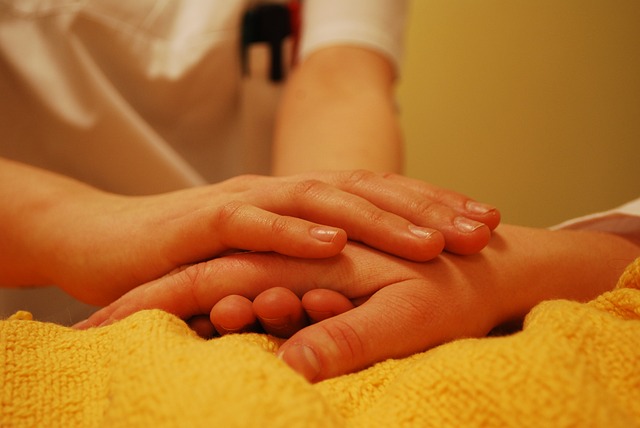Is There Such A Thing As Healthy Caretaking?
By Dr. Margaret PaulMay 29, 2012
A client of mine asked, "Is there such a thing as healthy caretaking?" Here is the answer!
 I was trained by my mother and grandmother to be a caretaker. The messages were: "Your feelings are not important to us at all. You need to learn to completely ignore your own feelings and instead take care of our feelings. In return for this, we will occasionally give you some approval for being a good girl."
I was trained by my mother and grandmother to be a caretaker. The messages were: "Your feelings are not important to us at all. You need to learn to completely ignore your own feelings and instead take care of our feelings. In return for this, we will occasionally give you some approval for being a good girl."
I learned my lessons well. I learned to stay in my head rather than my heart and soul so that I wouldn't be aware of my own feelings. I learned to be very vigilant regarding others' feelings and to do all I could to be what they wanted me to be. I completely lost touch with myself.
Of course, when I got married, I continued caretaking. I married a man who was a taker – very much like my mother and grandmother. I went about trying to win his approval by being what he wanted me to be—again ignoring my own feelings. Whenever I did feel upset, I believed it was because he was angry at me. Because I was taking care of his feelings, I believed he was responsible for my feelings, so when he was angry or withdrawn, I felt sad, abandoned and alone. It never occurred to me that I felt so badly because of how I was treating myself, rather than because of how he treated me.
As time went on, my body reacted to my self-abandonment by making me sick. My immune system was eroding from the lack of self-care, and I'm certain I would have eventually gotten a severe illness, such as cancer, had Dr. Erika Chopich and not met and created Inner Bonding, with the help ofour guidance.
It was then that I started to learn to take loving care of myself. I was truly shocked to learn that my caretaking, which I had previously thought was loving to my husband, my children and others, was a form of manipulation to get love and approval. All those years I had believed I was being loving by caretaking, only to discover that I was giving to get love, rather than loving myself and sharing my love with others. My giving—my caretaking—always had an agenda attached. Real love and caring have no agenda. They are gifts of the heart.
Caring, Caretaking and Caregiving
It took me a number of years to understand the difference between caring and caretaking, and I finally understood that there is no such thing as healthy caretaking. Caregiving, which is what we do for people who can't take care of themselves, such as babies and young children, old people or sick people, is very loving. Caring, which is what we give from a heart filled with love and no agenda attached, is very loving. But caretaking is manipulative.
Not only is caretaking not healthy for a relationship; it is not healthy for ourselves. Over and over, my clients complain of neck pain, back pain, shoulder pain and various illnesses that disappear when they listen to what they want and feel, and take loving action on their own behalf.
We can care and lovingly care-give when we are loving ourselves and filling ourselves up with love. When we abandon ourselves—by ignoring our feelings, judging ourselves, turning to various addictions to numb our feelings, and/or making others responsible for our safety and sense of worth—we create an inner emptiness and aloneness. This inner black hole energetically pulls on others to fill it with their love and approval. Filling ourselves up with love is a gift to both ourselves and to others.
Join Dr. Margaret Paul for her 30-Day at-home Course: "Love Yourself: An Inner Bonding Experience to Heal Anxiety, Depression, Shame, Addictions and Relationships."
 Send this article to a friend
Send this article to a friend  Print this article
Print this article  Bookmarked 1 time(s)
Bookmarked 1 time(s)
| Related Articles |
|---|
| Does Your Empathy Lead to Caretaking? |
| Caretaking Versus Compassion |
| Are You Caring or Caretaking? |
| 10 Signs of a Healthy Relationship |
| Addiction to Caretaking |
Comments
| Author | Comment | Date |
|---|---|---|
| Join the Inner Bonding Community to add your comment to articles and see the comments of others... | ||

Daily Inspiration
The paradox of our wounded self is that it wants to feel safe so it tries in so many ways to control that which it cannot control, which leads to feeling anxious and unsafe. Surrendering to what is and opening to spiritual guidance creates the peace that will never come from trying to control.
By Dr. Margaret Paul

 Share with Del.icio.us
Share with Del.icio.us Share with Digg
Share with Digg







